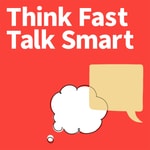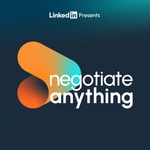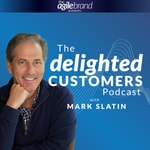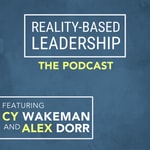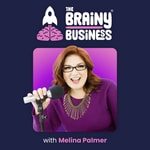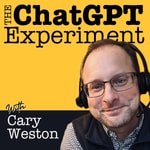The Intuitive Customer - Helping You Improve Your Customer Experience To Gain Growth – Details, episodes & analysis
Podcast details
Technical and general information from the podcast's RSS feed.
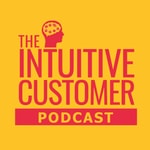
The Intuitive Customer - Helping You Improve Your Customer Experience To Gain Growth
Colin Shaw, Beyond Philosophy LLC
Frequency: 1 episode/7d. Total Eps: 404

Recent rankings
Latest chart positions across Apple Podcasts and Spotify rankings.
Apple Podcasts
🇨🇦 Canada - marketing
29/06/2025#93🇨🇦 Canada - marketing
28/06/2025#56🇬🇧 Great Britain - marketing
22/06/2025#89🇬🇧 Great Britain - marketing
21/06/2025#56🇬🇧 Great Britain - marketing
17/06/2025#76🇨🇦 Canada - marketing
29/05/2025#64🇬🇧 Great Britain - marketing
23/05/2025#93🇨🇦 Canada - marketing
15/05/2025#65🇬🇧 Great Britain - marketing
05/05/2025#71🇬🇧 Great Britain - marketing
18/04/2025#69
Spotify
No recent rankings available
Shared links between episodes and podcasts
Links found in episode descriptions and other podcasts that share them.
See all- https://www.podcastawards.com/app/signup
210 shares
- https://beyondphilosophy.com/podcasts/
165 shares
- http://www.beyondphilosophy.com
138 shares
RSS feed quality and score
Technical evaluation of the podcast's RSS feed quality and structure.
See allScore global : 53%
Publication history
Monthly episode publishing history over the past years.
Is Empathy Over-Hyped? What is Its Role? Why Bother?
samedi 31 août 2024 • Duration 31:02
In this episode, we dive deep into the concept of empathy and its significance in Customer Experience Management. We challenge common perceptions of empathy, explore its connection to emotional intelligence, and examine how both concepts can enhance your experience management efforts.
We begin with a discussion on the importance of Emotional Intelligence (EQ), referencing some compelling statistics:
-
Emotional intelligence influences 58% of job performance.
-
90% of top performers at work have a high EQ score.
-
The demand for EQ skills is projected to grow six-fold in the next three to five years.
-
Employees with empathetic leaders report a 76% increase in engagement and a 61% boost in creativity.
-
Restaurants managed by individuals with high EQ see a 22% annual profit growth.
-
EQ interventions in the workplace can reduce employee turnover by 63%.
-
75% of Fortune 500 companies have utilized EQ training tools.
Our guest, Sandra Thompson, an emotional intelligence coach from Ei Evolution, shares her insights on empathy within the context of EQ. She emphasizes the necessity of using empathy skills, which involve asking questions and truly listening to understand another person’s feelings and interpretations, rather than projecting our own emotions onto their experiences.
We also explore the idea that traditional empathy might be too contextual, as emotions are personal and can lead to misunderstandings if the emotional context differs. Thompson’s concept of “walking in the customer's shoes” is dissected, with the notion that while some shared experiences can foster empathy, unique contexts might still cause disconnects.
We break down empathy in emotional intelligence into three approaches: bad (not caring), good (walking the experience as if you were a customer), and better (experiencing as a customer and asking questions to understand their feelings). This layered approach is essential for effective experience management and creating genuine connections with customers.
In this episode we also explore:
-
The impact of empathy on job performance and employee engagement.
-
How empathy and emotional intelligence can reduce employee turnover and increase profitability.
-
The role of emotional intelligence in leadership and its effect on creativity.
-
Strategies for developing and implementing emotional intelligence skills in the workplace.
-
Real-life examples of how empathy and EQ improve customer experiences.
-
The importance of self-awareness in emotional intelligence and managing personal emotions.
-
Practical tips for enhancing empathy skills through active listening and inquiry.
Rules To Help You Decide When To Fire Your Customers To Increase Profit
samedi 24 août 2024 • Duration 31:55
In this episode, we challenge the conventional wisdom of customer-centricity and discuss why firing a customer is sometimes necessary. While it may seem counterintuitive, knowing when to let go of a customer can benefit your business in the long run.
We outline five critical rules to help you determine when it's time to part ways with a customer:
Rule #1: Fire customers if they cost too much. Some customers drain more resources than they generate in revenue. It's crucial to track these costs accurately and address the imbalance. If you can't rectify the situation, it's time to let them go.
Rule #2: Fire customers if they don't align with your brand. Your brand's values should resonate with your customer base. If a customer's values conflict with yours, maintaining the relationship can harm your brand's integrity and alienate your core audience.
Rule #3: Fire customers if they don't fit with your future. As your business grows, some customers might no longer fit your strategic goals. Prioritize resources for future growth by letting go of customers who don't align with your long-term plans.
Rule #4: Fire customers if they are too risky. If a customer's business model or payment practices pose a significant risk, it's safer to part ways. Overcommitting to one client or taking the undue risk can jeopardize your business stability.
Rule #5: Fire customers if they abuse your employees. Support and protect your employees from abusive customers. Ensuring a respectful work environment is critical for employee morale and long-term success.
Understanding these rules will help you make informed decisions about maintaining customer relationships that align with your business goals and values. Sometimes, the best way to move forward is to let go.
In this episode, we also explore:
-
The importance of knowing your customer cost metrics and tracking them accurately.
-
How to handle awkward conversations with customers about cost imbalances.
-
Examples of brand alignment, including the Colin Kaepernick and Nike story.
-
Strategies for soft-firing customers without abrupt severance.
-
Recognizing when your growth trajectory requires pruning your customer base.
-
Identifying and mitigating business risks associated with certain customers.
-
The impact of customer behavior on employee well-being and company policy.
-
Insights on post-pandemic changes in customer behavior and their effect on businesses.
-
The balance between customer-centricity and business sustainability.
The Surprising Truth About Economic Decision-Making: Why Your Logic Might be Flawed. Masterclass Part 5: Unlocking the Psychology of Customer Experience
samedi 22 juin 2024 • Duration 29:25
Regarding Customer Experiences and the behavioral sciences, there is seldom only one thing happening at a time. There are usually a lot of things happening at once. This masterclass episode, the fifth in a series of eight, explores economic biases and how they create flaws in our decision-making logic.
For example, one key bias discussed is the Sunken Cost Fallacy, where people need help to walk away from investments, leading to subsequent mistakes. Loss Aversion is another bias explored, highlighting how we feel losses more acutely than gains. This bias influences behaviors like resisting salary reductions and preferring to face a potential layoff (where one would lose all their salary) because we can’t imagine losing any part of our present income.
The Endowment Effect, stemming from Loss Aversion, emphasizes how we overvalue items we perceive as our own, leading to decisions like overpricing sentimental possessions. It’s why grad students can’t bear to part with their gift in exchange for a gift of equal value. It’s also why economist Richard Thaler, University of Chicago, can now add “Nobel-prize-winning economist” in his bio.
Ultimately, these economic biases reveal that people aren't always logical, and irrational factors often influence our decision-making processes. In this episode, we discuss why and what you can do about it in your experience design.
In this episode, you will also learn the following:
-
Strategies for recognizing and navigating economic biases in customer experience management.
-
Examples of how these biases manifest in everyday situations, such as purchasing decisions and salary negotiations.
-
The importance of understanding irrational decision-making in designing effective customer experiences.
-
Practical steps for leveraging insights from economic biases to enhance customer interactions and outcomes.
How customers memories can be altered and why we all forget things. (Memory Mini series 3/3)
samedi 1 octobre 2022 • Duration 39:43
When it comes to the behavioral sciences, I love their take on memory. I love it so much, that we did a podcast mini-series on it in three parts.
In the first part, we talked about why memories are essential to experiences, when we use them to decide sometimes, and how memories form.
The second part covered how memories are connected and the different types of memories we have.
In this final episode of the memory mini-series, we explore how we store, retrieve, and forget memories.
Why all this hullabaloo about memory? Simply put, I think too many organizations underestimate the significance of the effects customers’ memories have on their bottom line. Memories are essential to experiences. They connect us to our past and drive our behavior in the present. In many ways, memories define us.
Memory is also essential to customer loyalty and retention. Nobel-Prize-Winning economist Professor Daniel Kahneman explained it all to me ten years ago and I never forgot: customers don’t choose between experiences; they choose between the memories of an experience.
In this episode, we discuss how we retrieve, store, and forget memories. However, we also talk about what you can do with this information to ensure that when customers are sorting through their memories of your experience, they come back for more every time.
Key Ideas to Improve your Customer Experience
In our Memory Maker Training, we cover the importance of memories to your experience and how to train your employees to create excellent and lasting ones of your experience. This training builds upon your choice of the experience you want to deliver customers, whether that’s making them feel valued or cared for or something else in that moment. These memories are reinforced by the words, phrases, body language and tone used by your team.
Here are a few key moments in the discussion:
- 04:01 Ryan gets the discussion started by going over how our minds store memories and the influences on that process.
- 12:12 We learn how SOHCAHTOA from trigonometry is an excellent example of mnemonic devices that help us remember things and why.
- 13:57 Colin explains how an app called What Three Words uses an easier to remember way to pinpoint your location than coordinate numbers.
- 16:05 We discuss the Zeigarnik Effect and how it helps us retrieve memories, along with some other interesting tools.
- 26:41 We discuss how we sometimes misremember things, as studied by Elizabeth Loftus and presented on her TED Talk.
- 31:24 Ryan and I get into the “So what?” of memory and how you can apply what you have learned practically in your customer strategy.
Please tell us how we are doing! Complete this short survey.
Customer Experience Information & Resources
LinkedIn recognizes Colin Shaw as one of the 'World's Top 150 Business Influencers.' As a result, he has 290,000 followers of his work. Shaw is Founder and CEO of Beyond Philosophy LLC, which helps organizations unlock growth by discovering customers' hidden, unmet needs that drive value ($). The Financial Times selected Beyond Philosophy as one of the best management consultancies for the last four years in a row. Follow Colin on LinkedIn and Twitter.
Click here to learn more about Professor Ryan Hamilton of Emory University.
Why Customers Buy: As an official "Influencer" on LinkedIn, Colin writes a regular newsletter on all things Customer Experience. Click here to join the other 35,000 subscribers.
How can we help?
Click here to learn more about Beyond Philosophy's Suite of Services.
Loyalty is a function of memory, this is how memories are built. (Memory Mini series 2/3)
samedi 24 septembre 2022 • Duration 31:40
Memories do not exist alone. They are networked…and this network isn’t a bunch of the same kind of information arranged in neat order and categorized by type. It’s a network of different memory types intermingling facts and feelings, procedures, and judgements, all influencing each other in interesting ways.
Memory is what creates customer loyalty. It doesn’t matter what parts of your customer strategy you design. If customers don’t remember that you did it, it won’t matter later.
It’s for this reason that we love the subject of memory. So, we did a mini-series about it.
In this episode, the second part of a three-part mini-series on Memory, we build on the concepts we shared in the first episode. We talk about the memory network and how it works. We also discuss the different types of memories. Plus, we get into one of my favorite concepts from the “father of the behavioral sciences,” Nobel-Prize-winning economist Professor Daniel Kahneman, the Peak-End Rule.
It's sure to be an episode you will never forget.
Key Ideas to Improve your Customer Experience
There are a lot of things that memories are. They are facts, procedures, feelings, and evaluations. One thing they are not is a sole existence. We kick off this episode with an explanation of the network of memories that makes it clear what we mean.
Here are a few key moments in the discussion:
- 02:53 Ryan explains his metaphor of a fishing net to describe how memories connect to each other in our minds.
- 11:06 We discuss the different types of memories and how they form.
- 15:39 Colin explains how sometimes organizations can design experiences that train customers to use them, like the site where he buys his sheet music for the guitar.
- 19:04 We get into how habits are a type of memory, albeit and automatic and subconscious one.
- 22:13 Colin tells a story that is sure to mean that his daughter will never let him babysit his grandchild again.
- 23:55 Ryan explains Episodic memory, which is the one that is most like what experienced champions should do for their customer strategy.
You can listen to part 1 of our mini-series on memory here.
Please tell us how we are doing! Complete this short survey.
Customer Experience Information & Resources
LinkedIn recognizes Colin Shaw as one of the 'World's Top 150 Business Influencers.' As a result, he has 290,000 followers of his work. Shaw is Founder and CEO of Beyond Philosophy LLC, which helps organizations unlock growth by discovering customers' hidden, unmet needs that drive value ($). The Financial Times selected Beyond Philosophy as one of the best management consultancies for the last four years in a row. Follow Colin on LinkedIn and Twitter.
Click here to learn more about Professor Ryan Hamilton of Emory University.
Why Customers Buy: As an official "Influencer" on LinkedIn, Colin writes a regular newsletter on all things Customer Experience. Click here to join the other 35,000 subscribers.
How can we help?
Click here to learn more about Beyond Philosophy's Suite of Services.
Our behavior is motivated by what we recall, so how are memories formed? (Memory Mini series 1/3)
samedi 17 septembre 2022 • Duration 30:26
Memory is crucial to customer strategy. Understanding customer behavior requires a fundamental understanding of how we access and use memories in our daily life and how it drives decision making in our actions and even who we decide to trust.
In other words, understanding people requires understanding their memories. Further, it requires knowing what they remember and why, and also, what they don’t remember at all.
This week, the Intuitive Customer is going Netflix. We present the first of our three-part series on Memory. It’s the Memory Mini-Series, Part 1. In it, we explore how our behavior is motivated by our memories. We also take a closer look at how memories form, and where it lives in your mind, or whether it ends up in the memory wastebasket instead.
Key Ideas to Improve your Customer Experience
Memory is a giant subject as it relates to Customer Experience. It affects what customers remember about your brand, what they order or buy from you, and whether they ever come back. In essence, managing customer behavior requires managing their memories.
- 6:43 Ryan explains why memories are not all, but almost all of human psychology.
- 9:36 Colin asks Ryan to explain whether memory has anything to do with the decision-making shortcuts people use to make decisions, and Ryan explains that some do, and some don’t.
- 17:37 Ryan explains how brands are a memory-based structure in the minds of your customers, their thoughts, and feelings that they associated with your offering and why that is.
- 21:21 We explore how memories form, and how the different types of memory formations differ from each other, starting with how memories exist in our minds.
- 26:46 We explain why Ryan can still order a pizza from Pizza Hut in Cleveland, even though he hasn’t lived there in decades, and what to expect in the next installment of our three-part series on memory.
Please tell us how we are doing! Complete this short survey.
Customer Experience Information & Resources
LinkedIn recognizes Colin Shaw as one of the 'World's Top 150 Business Influencers.' As a result, he has 290,000 followers of his work. Shaw is Founder and CEO of Beyond Philosophy LLC, which helps organizations unlock growth by discovering customers' hidden, unmet needs that drive value ($). The Financial Times selected Beyond Philosophy as one of the best management consultancies for the last four years in a row. Follow Colin on LinkedIn and Twitter.
Click here to learn more about Professor Ryan Hamilton of Emory University.
Why Customers Buy: As an official "Influencer" on LinkedIn, Colin writes a regular newsletter on all things Customer Experience. Click here to join the other 35,000 subscribers.
How can we help?
Click here to learn more about Beyond Philosophy's Suite of Services.
The Big Miss! - How Organizations Overlook the Value of Emotions
samedi 10 septembre 2022 • Duration 31:10
What did you do during the lockdown? Did you take up a hobby or a new exercise program? Did you watch hours of news coverage hoping for some good news? Were you in the kitchen working with your sourdough starter? Or were you on the couch watching the entirety of Netflix?
All were excellent pursuits, by the way, especially the bread making. However, one of my team was spending the lock down a different way: taking a deeper dive on the data we have collected on our Emotional Signature® research. What he found there became a book.
Our Emotional Signature research measures the level of emotional engagement you have with customers right now and determines what the really want from you. We undertake this exercise by asking a lot of questions. As a result, we have loads of responses, nearly a million in fact.
We had looked at it for each project, gleaning the insight for our client and then filing it away for posterity. However, we had never undertaken a perusal of the whole batch together, even though I thought we should and often told my team we were sitting on a gold mine. It only took a global pandemic to get us to start digging.
In this episode, we talk with Zhecho Dobrev, Senior Consultant at Beyond Philosophy for 13 years, Customer Experience and Behavior Science Consultant and Trainer, and, now, Author of The Big Miss: How Organizations Overlook the Value of Emotions, about what he found and whether any of it was worth its weight in gold. You can follow Zhecho on Twitter here.
Key Ideas to Improve your Customer Experience
In many ways, this research is significant in scope and fairly international. Dobrev's book uses the responses from nearly 20,000 customers from 24 organizations within nine industry sectors, including healthcare, finance, telecoms, utilities, and others. While there were plenty of business-to-consumer models, almost half were business-to-business companies, too. Respondents were from the US, UK, Canada, and Europe. With all the resources and data gathered over the past two decades, what Dobrev discovered about customer behavior might surprise you.
Here are a few key moments in the discussion:
- 03:53 Zhecho explains what he was looking at and what he was looking for during his lockdown with a decade’s worth of Beyond Philosophy Emotional Signature data.
- 08:15 Zhecho shares some interesting research that demonstrates that despite knowing that how customers feel affects decision-making, most organizations ignore it.
- 15:36 We get into the opportunity costs associated with ignoring this essential part of the customer experience to organizations, including the development of a Wicked Learning environment, which we discussed a few weeks back.
- 20:19 We hear a story of how a closer look at what people really want helped move the ball for the YMCA gyms.
- 23:56 Zhecho shares another example from a luxury store in California that measured the brain activity of an employee while managing the emotional experience and how it resulted in more sales for the store.
- 27:51 Ryan shares his experience with managing emotions and shares his advice for how to apply this in a real world experience.
- 28:56 Zhecho shares his advice for how to apply these ideas in practical ways for your organization.
Please tell us how we are doing! Complete this short survey.
Customer Experience Information & Resources
LinkedIn recognizes Colin Shaw as one of the 'World's Top 150 Business Influencers.' As a result, he has 290,000 followers of his work. Shaw is Founder and CEO of Beyond Philosophy LLC, which helps organizations unlock growth by discovering customers' hidden, unmet needs that drive value ($). The Financial Times selected Beyond Philosophy as one of the best management consultancies for the last four years in a row. Follow Colin on LinkedIn and Twitter.
Click here to learn more about Professor Ryan Hamilton of Emory University.
Why Customers Buy: As an official "Influencer" on LinkedIn, Colin writes a regular newsletter on all things Customer Experience. Click here to join the other 35,000 subscribers.
How can we help?
Click here to learn more about Beyond Philosophy's Suite of Services.
5 rules for a highly successful customer experience implementation with amazing ROI! - A case study
samedi 3 septembre 2022 • Duration 37:42
A lot of the behavioral sciences can feel intimidating. However, it doesn’t have to be. The Five Rules Podcast Series is our attempt at giving you an easy entry point into the complex and messy world of Behavioral Science.
In my 20 years as a consultant for Customer Experience, I have been involved in several successful implementations. The Maersk Line project that I worked on with Michél Patterson, a continuous improvement expert in Lean Six Sigma was one of the most, with an improvement of 40 points for their Net Promoter Score® (NPS) over 30 months. What’s more is they also experienced a 10 percent increase in shipping volumes.
Implementation was a big part of that success. To that end, in this episode we share the five rules of a successful customer experience implementation. Michel Patterson takes the lead on this one, as a career-long believer in continuous improvement providing the following five rules she used in her first, and very successful, project with customer experience improvement:
- Define: What are you trying to accomplish?
- Measure: How will you know if what you do is working?
- Analyze: What changes are possible that might improve experiences?
- Improve: How can you roll these changes out on a larger basis?
- Control: How can you keep things moving in the right direction?
In this episode, we cover these five rules and how they played out in our highly successful Customer Experience implementation for the world’s largest shipping container company.
Key Ideas to Improve your Customer Experience
If you know anything about Lean Six Sigma, you probably recognize the five rules. These phases of the implementation serve as excellent guideposts in a customer experience project like this one. Michel Patterson says that for her first project in the implementation area, these five areas were the natural inclination for organizing their efforts with Maersk.
Here are a few key moments in the discussion:
- 06:44 Michel Patterson explains how she didn’t have a lot of experience with handling customer experience improvement projects, so she relied on her Lean Six Sigma background and project management structure, starting with Define.
- 14:43 Michel Patterson explains the concept about putting Measure second in the list and why it is essential it is there.
- 22:04 We discuss the third in the list, Analyze and how the changes you make are going to improve the experience and move the metric identified in the second step, Measure.
- 25:00 Colin brings up the Ambassadors, how they were chosen, and the role they played in the implementation.
- 26:52 After you improve your experience in a bigger way based on the first three steps, you land at Control, which is where you keep things going and improving continuously.
- 30:58 Colin adds in some details he remembers from the implementation and how they played into the success of the overall project.
Please tell us how we are doing! Complete this short survey.
Customer Experience Information & Resources
LinkedIn recognizes Colin Shaw as one of the 'World's Top 150 Business Influencers.' As a result, he has 290,000 followers of his work. Shaw is Founder and CEO of Beyond Philosophy LLC, which helps organizations unlock growth by discovering customers' hidden, unmet needs that drive value ($). The Financial Times selected Beyond Philosophy as one of the best management consultancies for the last four years in a row. Follow Colin on LinkedIn and Twitter.
Click here to learn more about Professor Ryan Hamilton of Emory University.
Why Customers Buy: As an official "Influencer" on LinkedIn, Colin writes a regular newsletter on all things Customer Experience. Click here to join the other 35,000 subscribers.
How can we help?
Click here to learn more about Beyond Philosophy's Suite of Services.
The Myth of Experience
samedi 27 août 2022 • Duration 31:22
Intuition is a concept that plays a major role in decision-making for all humans. Intuition is the way we can “know” things without using our reasoning. It is based on our instincts and experiences, and our need to find patterns for things in our lives.
Unfortunately, intuition isn’t always right. Knowing when intuition could be correct and when it might not be is a critical skill for any of us, particularly in business.
Robin Hogarth’s book, The Myth of Experience, can help. In it, Hogarth has theories about intuition and how it forms, and in what conditions it might be more reliable than others.
In this episode, we explore the idea of intuition, how cognition affects it, and what environmental factors affect its reliability. We also share some practical advice on how you can overcome your propensity to use instinct and combine it with rational processes to get the best possible outcome for yourself and your organization.
Key Ideas to Improve your Customer Experience
We talk about intuition as a “gut feeling” or “something we know in our hearts.” However, intuition lives squarely in our brains. It is part of the two systems of cognition that we all share. One system is fast and automatic, while the other is slow and methodical. Intuition comes from the fast and automatic part, so understanding how that works will also help you understand when your intuition is serving you—or failing you.
- 03:48 Ryan discusses what he learned from Hogarth’s book regarding where intuition comes from and how it forms.
- 06:31 We discuss how intuition plays a role in my Apple product obsession.
- 10:45 Hogarth’s research indicates that there are two environments under which intuitions form, kind and wicked, which has a video that explains it well.
- 15:51 We discuss how you might not always know which kind of environment you are in, kind or wicked, and are often fooled; this video also explains how people get fooled and why.
- 23:48 Moneyball, either the book or the movie, gives us a good example on how to build upon the instinctive decisions we favor and coupling that with rational processes to ensure it isn’t wrong.
- 25:42 We share the practical advice we can glean from this concept and apply them to your decision making and what resources you trust.
Please tell us how we are doing! Complete this short survey.
Customer Experience Information & Resources
LinkedIn recognizes Colin Shaw as one of the 'World's Top 150 Business Influencers.' As a result, he has 290,000 followers of his work. Shaw is Founder and CEO of Beyond Philosophy LLC, which helps organizations unlock growth by discovering customers' hidden, unmet needs that drive value ($). The Financial Times selected Beyond Philosophy as one of the best management consultancies for the last four years in a row. Follow Colin on LinkedIn and Twitter.
Click here to learn more about Professor Ryan Hamilton of Emory University.
Why Customers Buy: As an official "Influencer" on LinkedIn, Colin writes a regular newsletter on all things Customer Experience. Click here to join the other 35,000 subscribers.
How can we help?
Click here to learn more about Beyond Philosophy's Suite of Services.
The future today! How to build a proactive experience to gain growth and save costs!
samedi 20 août 2022 • Duration 36:27
My iPhone is getting bossy. It suggested widgets based on the time of day I was using it. This proactive experience is the future of experiences. Unfortunately, few organizations know how to build them.
While the definition of proactive experience is somewhat fluid at the moment, perhaps the best way to describe it is to solve a problem before the customer knows they have one. This proactive experience is powered by the emerging field of Customer Science, a convergence of data, artificial intelligence (AI), and the behavioral sciences. Intaking a variety of consumer inputs, the machine will output a response intended to resolve these customers’ predicted needs creating a positive engagement tool for customer service.
There are benefits to customers with proactive experiences. Many customers want a proactive experience because it feels more personal, improving consumer satisfaction. It makes a person feel more important and appreciated when a system tries to recognize what they want.
Organizations benefit, too. To the company, proactive experiences provide a different advantage: customer retention. If customers feel more satisfied with their experience, they are more likely to return to your site in the future.
In this episode, we invited Vasili Triant, Chief Operating Officer of Ujet, to tell us more about what is possible with proactive experiences. He shares many go-to-market activities that can help organizations gain the first-mover advantage rather than we-are-getting-left-behind hustle.
Key Ideas to Improve your Customer Experience
A company can do a few things to create this positive engagement tool for customer service. It all starts with understanding your customers, which involves customer segmentation, dividing them into similar groups, and appealing to what they have in common and value collectively. From there, you must hire people to transform this information into algorithms that can predict what the customer wants to do based upon indicators provided by said customer.
Here are a few critical moments in the discussion:
- 06:17 Vasili introduces the concept of proactive customer service, its definition, and its benefits.
- 10:33 We discuss the process of formulating a proactive customer experience and how to ensure its success.
- 15:45 We discuss how proactivity contributes to the future of customer experience.
- 25:22 Vasili explains how proactive customer experiences help to predict customer behavior.
- 27:50 Vasili details his frequently asked questions and the answers he uses to help organizations take advantage of this engagement tool to boost the customer service experiences.
This podcast was produced in partnership with Ujet.cx. You can find more on them on their Twitter page here.
Please tell us how we are doing! Complete this short survey.
Customer Experience Information & Resources
LinkedIn recognizes Colin Shaw as a 'World's Top 150 Business Influencers.' He has 290,000 followers. Shaw is the Founder and CEO of Beyond Philosophy LLC, which helps organizations unlock growth by discovering customers' hidden, unmet needs that drive value ($). The Financial Times selected Beyond Philosophy as one of the best management consultancies for the last four years. Follow Colin on LinkedIn and Twitter.
Click here to learn more about Professor Ryan Hamilton of Emory University.
Why Customers Buy: As an official "Influencer" on LinkedIn, Colin writes a regular newsletter on all things Customer Experience. Click here to join the other 35,000 subscribers.
How can we help?
Click here to learn more about Beyond Philosophy's Suite of Services.
